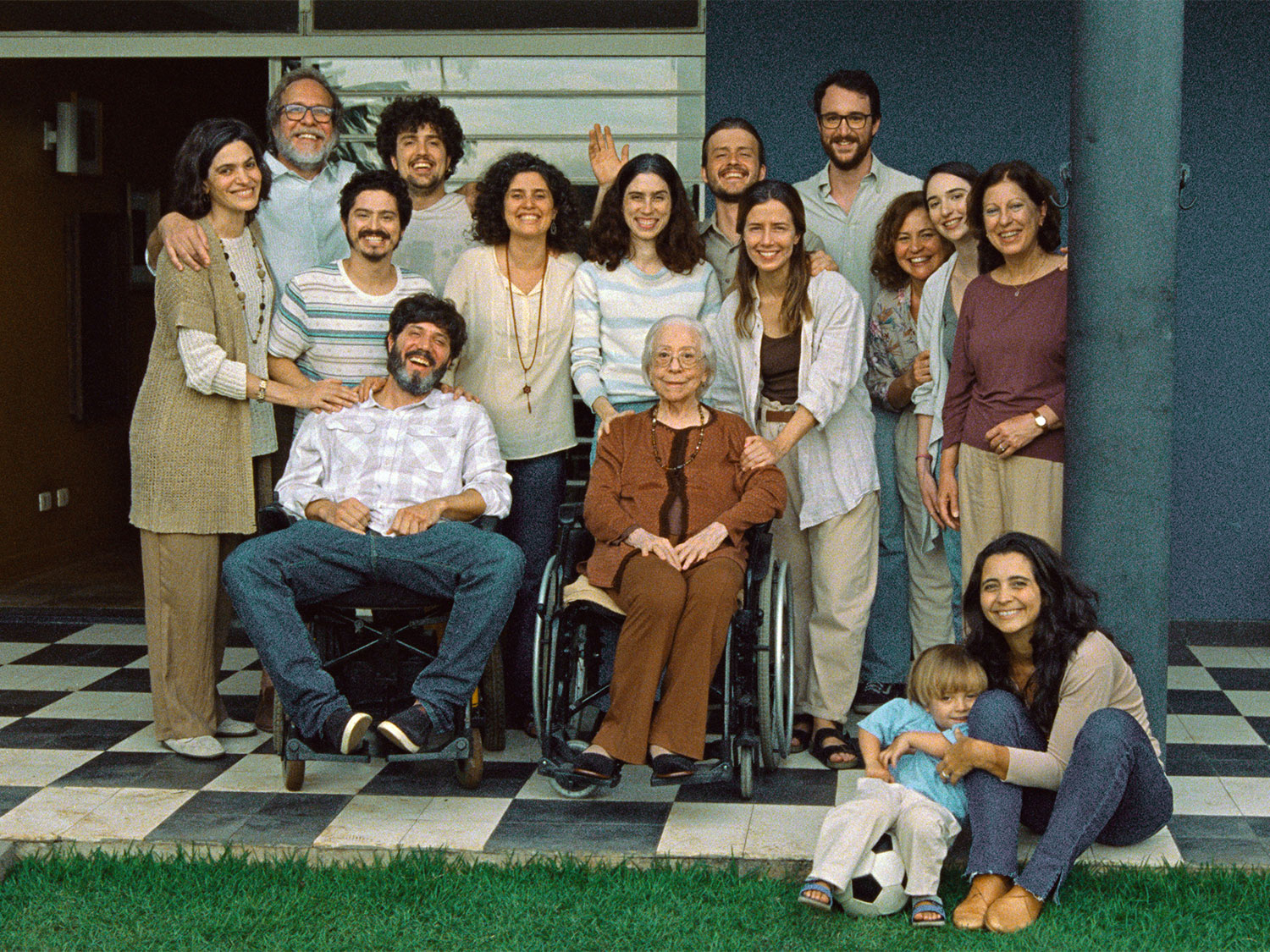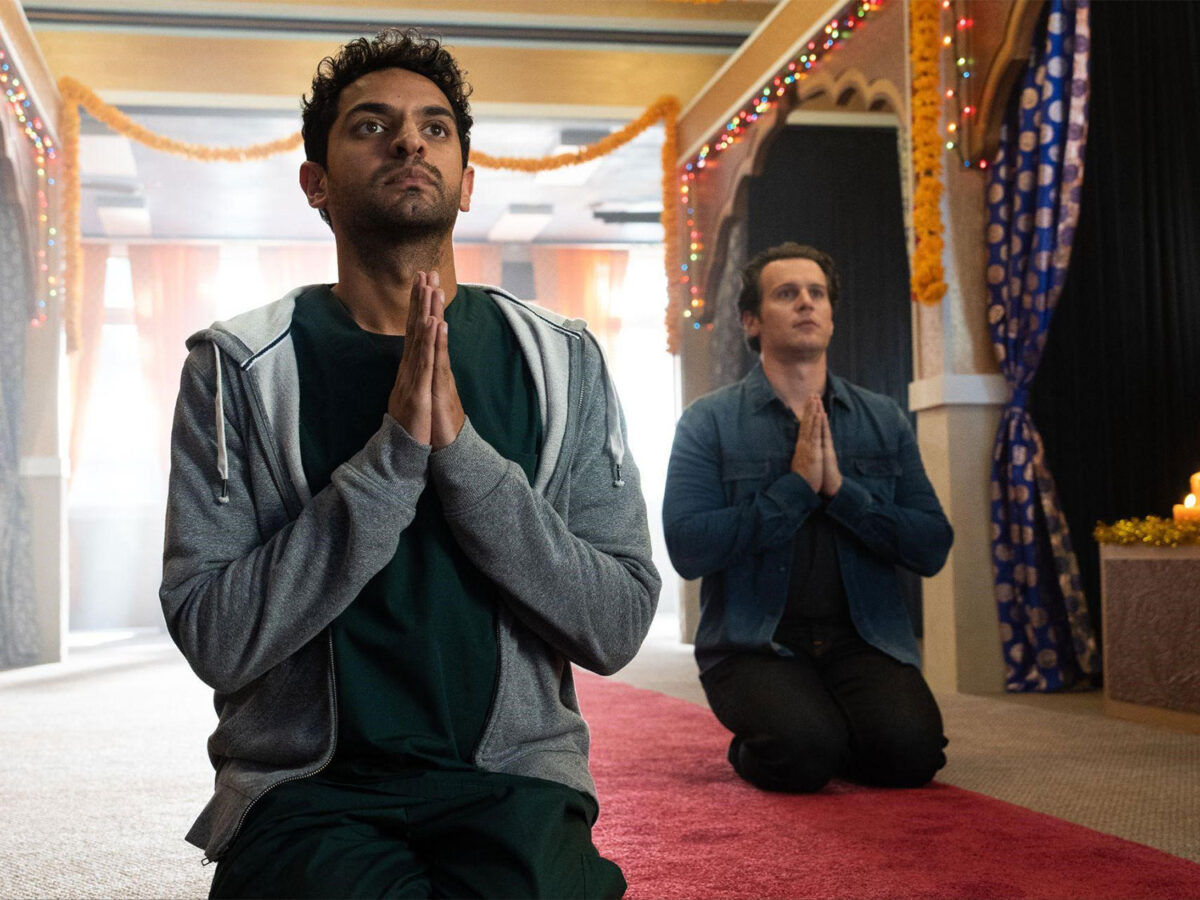Walter Salles, the internationally famous Brazilian director of “Central Station” and “The Motorcycle Diaries,” has gifted us with another film that transcends boundaries. “I’m Still Here,” adapted by Murilo Hauser and Heitor Lorega from the book by Marcelo Rubens Paiva, tells the gut-wrenching and engrossing story of the disappearance of Paiva’s father, Rubens.
It is 1971 and the Paiva family lives comfortably at the beach in Rio de Janeiro. Eunice and Rubens enjoy a quiet life of joy with each other and their five children. Brazil has been under a military dictatorship since 1964 and, for a short time after, Rubens, a congressman in the pre-junta government, had to leave Brazil. Forcibly retired from politics, he works at his architecture firm designing for others as well as the dream house he has planned for his family. But there has been an uptick in government suppression and much like, actually identical to, the “desaparecidos” (the disappeared) in Argentina, also under military control, suspected leftists, so-called agitators, long-haired students and former politicians have been arrested and sequestered from view. Many were never seen or heard from again.
Rubens’ closest friends have chosen to move to London and beg him to come with them. An optimist at heart, he refuses but allows them to take his eldest daughter with them, fashioning it as a gap year. She has been traveling in dangerous company and the Paivas see the wisdom in removing her from the scene. Unfortunately, his optimism is misplaced and he, too, is soon arrested when a group of men, none in uniform, come to the house. Declaring that he will return as soon as he answers some basic questions, they leave two thugs at the house to monitor the family’s comings and goings. Not only does he not return but more para-militarists arrive at the home to arrest Eunice, subjecting her to a surreal experience in a hidden military jail full of unknowns and the unknowing, many of whom scream in torture.

Photos by Allie Onawale, courtesy of Sony Pictures Classics
Salles builds his story gradually, introducing us to the normality of the Paivas as they play and work and live the small annoyances and joys of every close-knit family. Not ostentatious, but it is clear they are wealthy, with staff, private schools and the leisure of bathing daily in the sea outside their front door.
The family is feeling the loss of the patriarch in myriad ways. His interactions with them all are documented in home movies that they enjoy watching and reliving. The nightmare intensifies when Eunice is snatched away. Returning home, she is changed and determined, with a steely-eyed focus. There had been rumors for some time that people were being abducted, never to return home. All she has ever wanted, or will want, is a definitive answer. She realizes that she will never be told what his alleged crime was, but she wants, needs to know whether he is still alive and, if so, where he is being held. This, basically, is what the film is about—the search for truth.
“I’m Still Here” refers to Eunice. It is her daily invocation just to know. Her bravery in the face of defeat is a portrait of valor, fighting against the odds for truth. A woman, alone in an oppressive patriarchy, fights and we follow.
Fernanda Torres, as Eunice, effortlessly exhibits a full range of emotions, sometimes within mere moments. She makes you care about Eunice and understand the untenable situation into which she has been thrust. She ages before your eyes, and in a casting coup, her mother, the 95-year-old Fernanda Montenegro, plays Eunice in her later years. Montenegro, it should be noted, was nominated in 1999 for Best Actress at the Academy Awards for her stunning role in “Central Station.” In a fitting tribute to those two generations, Torres recently won the Best Actress in a Drama at the Golden Globes.

Photo by Adrian Teijido, courtesy of Sony Pictures Classics
Selton Mello plays Rubens Paiva. Sympathetic, empathetic, joyful, serious, he paints his character with a nuanced palette. Salles and his writers have given each of the Paiva children fully developed characters imbued with adolescent prickliness, loneliness, love and closeness.
This is a powerful story, one that affected far too many. Brazil was only one of many countries whose unelected military dictatorships disappeared their enemies, many of whom were merely exercising a long-abandoned right to dissent. In Argentina, the wives and mothers of the “desaparecidos” still maintain a vigil outside the Casa Rosada (their White House) demanding answers, answers that rarely come. “I’m Still Here” is about demanding answers.
This is a swiftly moving film that rarely flags. If there is a fault, it is an all-too-common one. Salles had too much that he wanted to say. When he focused on Eunice’s steadfast demand for answers, one that she would maintain for many years, the movie is superb. When he deviated from his focus on the wrongs inflicted on the Paiva family and its political implications, he lessened the impact that he had established. Following Eunice’s activities as she established herself independent of her search became more of a “and then she did this and then she did that” kind of narrative. Yes, Eunice Paiva was an interesting and courageous woman who broke barriers and defied expectations, but this is a movie about a search for answers. By expanding the premise he originally set out, he made the ending feel more like a coda.
This is a must-see movie if only from the standpoint that we should never forget what happened and try to make sure it doesn’t happen again, there or anywhere.
In Portuguese with English subtitles.
Opening Jan. 17 at the Laemmle Royal and AMC The Grove 14.







